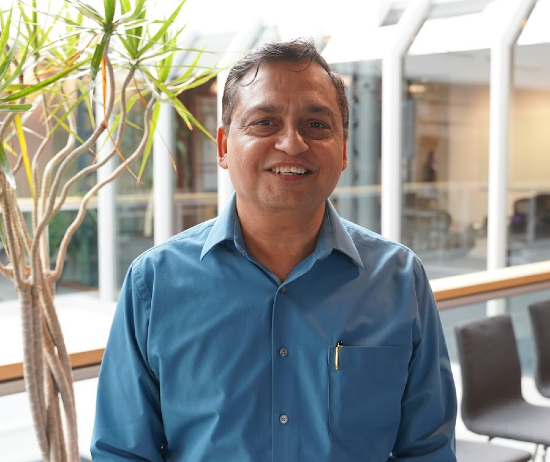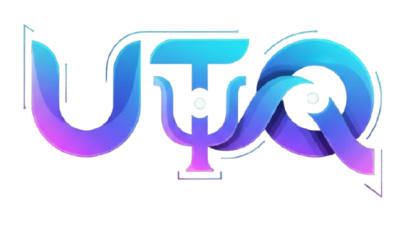

Salt Lake City, Utah — November 26, 2025
Quantum computing is on the verge of reshaping industries, governments, and national security, but most organizations are unprepared, say the founders of a new Utah startup, UTahQuantum (UTQ), founded by Sumit Parashar, Neil Nickolaisen, and Brig. Gen. (Ret.) Max Stitzer, that aims to translate complex quantum science into practical, deployable solutions. Based in Salt Lake City, the startup is pioneering a concept of a Quantum Systems Integrator (QSI), linking academic theory, enterprise needs, and government priorities.
A Complementary Team at the Forefront of Quantum
Sumit Parashar – Systems Integrator & Vision Leader
CEO of BODEX and veteran of enterprise systems integration, Parashar focuses on turning quantum theory into actionable tools. He coined the QSI term to define UTQ’s mission: bridging hardware, software, and architecture to deliver usable quantum solutions.
Neil Nickolaisen – Enterprise Architect & Strategic Technologist
Nickolaisen brings decades of experience in IT transformation and academic research. He sees quantum computing as forcing a complete rethink of enterprise information storage, retrieval, and processing.
“The mechanisms we use today won’t survive the quantum era,” he says. “UTQ is uniquely positioned to help organizations adapt.”
Brig. Gen. (Ret.) Max Stitzer – National Security & Cyber Defense Expert
With four decades of military service, including intelligence and Pentagon leadership, Stitzer focuses on ensuring UTQ solutions meet the highest national security standards.
“Cybersecurity is national security,” he says. “Quantum is the game changer, and the consequences for intellectual property and critical infrastructure are enormous.”
Together, the founders aim to unify Utah’s fragmented quantum ecosystem, universities, startups, state initiatives, and defense partners, into a coordinated effort.
Mission: Turn Quantum Complexity Into Practical Tools
UTahQuantum has identified more than ten areas where quantum computing outperforms classical systems. Early POCs will focus on:
- post-quantum encryption and cybersecurity
- quantum-optimized information storage and retrieval
- IoT sensing and communications
- process optimization for complex workflows
Selection and prioritization will depend on client site discoveries, funding availability, and market requirements. Prototype development begins in Q1–Q2 2026. In the meantime, simulations on conventional hardware are advancing the work.
The Quantum Encryption Crisis

Parashar warns that quantum computing will soon break current internet encryption:
- Real-Time Decryption: Powerful quantum machines could compromise SSL/TLS on demand.
- Offline Data Harvesting: Adversaries are already downloading encrypted files; quantum will make those archives instantly readable.
“As soon as quantum technology is in the hands of day-to-day users, it will break the internet’s encryption—the ‘S’ in HTTPS,” Parashar warns. Finance, government, and defense organizations are already preparing for the potential upheaval.
Stitzer highlights the stakes:
“We’re entering a new type of conflict. Intellectual property and sensitive data can be exfiltrated at the click of a mouse. Quantum magnifies that threat a million times.”

Reinventing Enterprise Information Architecture
Nickolaisen emphasizes that quantum computing will require enterprises to rebuild storage models, retrieval logic, communication protocols, and IoT data pathways. UTQ’s QSI model positions them to guide these tectonic shifts.

Partnerships and Ecosystem Building
UTQ has engaged with all major Utah universities: University of Utah, UVU, Weber State, Utah State University, and Utah Tech University. They plan to form a cross-university quantum task force to align statewide research initiatives
On the government side, UTQ collaborates with 47G and explores potential partnerships with federal agencies, including the DoD.
Funding and Growth
UTQ launched on October 15, 2025, and is currently self-funded. As traction grows, the team plans to pursue:
- private investment
- state and federal grants
- early revenue through client readiness assessments
UTQ will expand into a full engineering and architecture team as funding becomes available.
Vision: Integration, Education, and Public Understanding
UTQ is committed to demystifying quantum computing through blogs, talks, educational presentations, and a future podcast. Their logo, featuring a Q, psi (Ψ) symbol, and a particle dot, reflects quantum duality. Their tagline, “Quantum Leap Engineered,” underscores the mission to tackle difficult challenges.

UTQ’s early client engagements will focus on assessing readiness, identifying vulnerabilities, and preparing enterprises and government partners for quantum hardware adoption.
“We want to affect a lot of surface area,” Stitzer says. “Helping smaller organizations bring innovation to life is how we continue to serve.”
Learn more at utahquantum.org.
Editor's note: UTQ is a privately owned, for-profit company with no affiliation to Utah’s state-led quantum initiatives or government entities.


